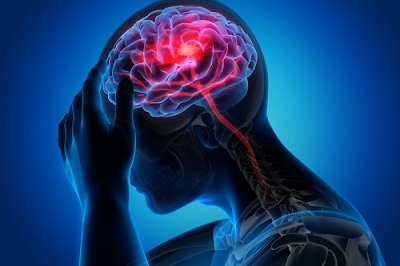 A stroke can occur at any time – suddenly – with no advanced warning. Strokes are the third leading cause of death in females – especially in older age as compared with males. The prospect of experiencing a stroke is indeed scary as it is a major contributor to disability. In this report, we look at the latest research on the use of hormone replacement therapy and stroke risk. We will examine the most common types of HRT – estrogen, progesterone, progestin, testosterone, and human growth hormone.
A stroke can occur at any time – suddenly – with no advanced warning. Strokes are the third leading cause of death in females – especially in older age as compared with males. The prospect of experiencing a stroke is indeed scary as it is a major contributor to disability. In this report, we look at the latest research on the use of hormone replacement therapy and stroke risk. We will examine the most common types of HRT – estrogen, progesterone, progestin, testosterone, and human growth hormone.
Is there a correlation between HRT and stroke?
In some instances, the relationship is well-defined. For other hormones, more research is necessary before a clear answer can be given. What we do know is this – the body is designed with a balanced need for hormones. When any particular hormone is out of balance, it can increase certain health risks. That is why doctors specializing in the field of hormone replacement therapy use great care when determining who can benefit from HRT, and how much to prescribe.
Regarding the concern over HRT and stroke, it is also important to understand the risks involved and compare them to what can happen if one avoids hormone therapy. For example, if there is a significant risk that using estrogen therapy can increase the possibility of developing a stroke, then a woman may be better off finding natural methods of reducing hot flashes and night sweats if those are the primary concerns. However, if there are medical reasons why estrogen is necessary, weighing the benefits compared to the risks may provide a different answer.
Understanding the relationship between hormones and stroke is essential because many people who experience ischemic stroke tend to have reduced hormone levels that can impair memory and cognitive functions, decrease energy, and cause other significant health problems.
A stroke can occur for no reason – however, certain hormones may impact the risk.
Does Hormone Replacement Therapy Increase the Risk of Stroke?
In our first look at hormone replacement therapy and stroke, we find that the use of testosterone and human growth hormone does not increase the risk of a stroke in men. There is no reported concern over HGH use and increased stroke risk in males or females.
However, one study does show that higher testosterone to estradiol ratio in postmenopausal women may increase the risk of stroke and heart failure. Higher total serum testosterone levels were associated with an increase in risk for cardiovascular disease (CVD) while increased estradiol levels lowered risk factors. Again, these issues were limited to one study – much more research is necessary. Testosterone has also been found beneficial for many women and can increase estrogen levels due to testosterone conversion to estradiol.
Studies are also conflicting in their findings. A report published in 2017 shows that the timing of hormone therapy in women may also alter the stroke risk. Data from 5 population-based Swedish studies showed that HRT administered early in menopause onset did not increase stroke risk. However, initiating hormone therapy later – 5 years after menopause onset – did increase stroke risk for either synthetic estrogen alone or in combination with synthetic progesterone.
The Women’s Health Initiative (WHI) examined HRT and stroke risk using synthetic estrogen along with estrogen and progestin therapies. The trial ended early after only five years due to increased risk factors for breast cancer, stroke, coronary events, and pulmonary emboli. Also, as part of the WHI, women who used Estratest (testosterone and synthetic estrogen combined) had a higher risk of stroke. There were no assessments done on women using only bioidentical testosterone.
In another study out of Denmark, oral HRT increased stroke risk, but vaginal and transdermal estrogens decreased the risk.
When it comes to bioidentical progesterone hormone replacement therapy and risk of stroke, progesterone treatment appears to have no bearing on stroke risk. It is considered a safe form of hormone replacement therapy.
For the percentage of women on HRT, 2019 will likely offer many other studies. New research out of Finland shows that women taking HRT longer than ten years have a 9 to 17 percent increased risk of Alzheimer’s disease. Again – conflicting reports say that HRT improves brain function, and many factors were left out of that study. We cannot stress enough the importance of speaking with a hormone specialist to assess your risks vs. benefits when it comes to any type of hormone replacement therapy.
Certain types of HRT may increase stroke risk – it is best to speak with a hormone specialist to assess personal needs and risks.
Can Hormone Replacement Therapy Decrease the Risk of a Stroke?
A significant question about HRT centers around prevention. Is there a connection between the use of hormone replacement therapy and stroke risk decline?
When it comes to preventing or decreasing the risk of stroke and HRT use, again, it depends on the hormone in question.
Testosterone:
A review of seven studies of testosterone replacement therapy (TRT) in men turned up the following results:
- Two studies demonstrated a significant decrease in ischemic stroke risk associated with TRT use
- The remaining studies did not report any associations between stroke and TRT
When it comes to hormone replacement therapy and stroke, testosterone may provide protective benefits against stroke and myocardial infarction (heart attacks).
Progesterone:
Based on considerable research, it seems that not only does natural, bioidentical progesterone not increase the risk of a stroke, but it may also decrease the incidence.
Estrogen:
Based on research from numerous studies, estrogen use is not indicated for the prevention of strokes in women.
Human Growth Hormone:
HGH may offer preventative measures for reducing the risk of stroke. Human growth hormone provides many neuroprotective benefits for the brain. More research is warranted in this area.
Some types of hormone replacement therapy may decrease the risk of stroke.
Hormone Replacement Therapy After a Stroke
In addition to the use of HRT as a preventative measure, there is also the question of undergoing treatment following a stroke. Are there benefits of using hormone replacement therapy after stroke?
The scope of studies in the use of HRT following a stroke is still relatively small for some of the hormones listed. Most of the research to date has been on rodents. Comparisons between traumatic brain injury and ischemic stroke are frequent, even though they affect the brain in different ways.
Progesterone:
In clinical studies of progesterone use following TBI, the results are mixed – some showing no benefit while others do provide a positive outcome for improvement. While there is some belief that progesterone may have significant benefits for stroke, more research is necessary.
Testosterone:
There has been better research done regarding testosterone following a stroke. On a study of men with type 2 diabetes who experienced a non-fatal ischemic stroke, long-term (up to 5 years) testosterone use provided the following results:
- Reduced risk of developing a second stroke
- Decreased death risk associated with a second stroke
- Increased muscle strength
- Speeds up recovery
- Reduced body weight
- Lowered blood pressure
- Improved quality of life and decreased symptoms of depression
- Reduced LDL cholesterol and triglycerides
These results are important because men who have type 2 diabetes have a four times higher risk of a stroke than non-diabetic men. Also, men who have experienced a stroke tend to have significantly lower levels of testosterone than those who have not had a stroke.
Human Growth Hormone:
In an examination of human growth hormone replacement therapy and stroke, HGH use may provide benefits to patients with proper treatment. Growth hormone deficiency is a significant factor for many people following a stroke. In a 2018 study on mice, those that received HGH therapy following a stroke had better cognition and energy than those mice that received a placebo. HGH has neuroprotective benefits for the brain and promotes plasticity which can all help with the repairing of nerve damage, the formation of new blood vessels, and the reversal of apoptosis – early cellular death.
A study of 15 patients in Korea found that those who received HGH therapy at least two-months post-stroke had the following benefits:
- Less fatigue
- Reduced brain fiber loss
- Higher scores in daily activity and ambulation
Both testosterone and growth hormone have been proven effective in treating stroke symptoms.
Is There a Difference between Bioidentical and Synthetic Hormone Replacement Therapy and Stroke Risk?
As we look at synthetic vs. bioidentical hormone replacement therapy and stroke, we find one factor to be true – the risk of any side effects is always greater with synthetic hormones.
Bioidentical hormones are just as they sound – biologically identical to the corresponding hormones in the body. They have the same molecular structure, so they are readily accepted and used by the body to carry out the same functions as naturally occurring hormones.
Synthetic hormones mimic the natural hormones functions; however, they are not structurally identical. The body must first convert them through various processes before they can be synthesized for use. For that reason, synthetic HRT therapy and stroke risk is often increased.
For further information about hormone replacement therapy and stroke risk, please contact our hormone clinic for a free consultation.
A hormone replacement therapy specialist is the best person to speak with about HRT use and stroke risk.

